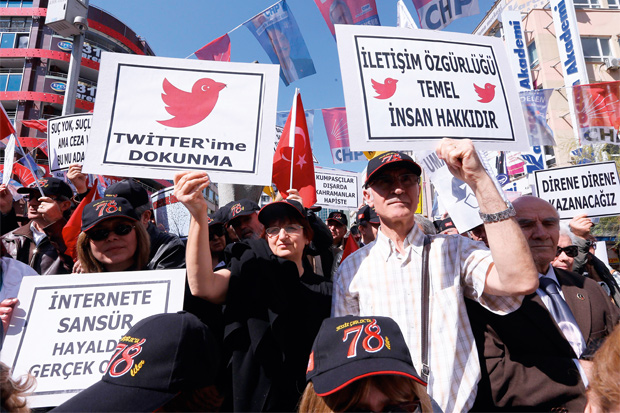On a recent weekend I was thinking of taking my sons to downtown Istanbul to do some bazaar browsing. ‘Bad idea’, a fellow expatriate warned me, ‘revolution on Taxim Square. Again.’ Revolt has become the new normal in Istanbul, a constant of urban life to be followed like the weather. Every few months the ritual dance erupts, chanting crowds on one side and sinister and well-drilled riot police on the other, followed by water cannon and the artillery-like noise of tear-gas canisters being fired into the crowd.
How has Turkey come to this? Twelve years ago, Turkey’s then-new prime minister Recep Tayyip Erdogan promised to be an ‘Islamic Democrat’ in the sense that Germany’s Christian Democrats were Christians. ‘The West was looking to Turkey as an experimental marriage between democracy and Islam,’ writes Alev Scott in her new book, Turkish Awakening. And for nearly a decade it seemed to work: Turkey was accepted as an official candidate member to the EU, Erdogan dismantled the political influence of the army, foreign investment poured in and Turkey became Europe’s most dynamic and fastest growing economy.
Now, as that dream unravels and Erdogan’s authoritarian vision clashes with the aspirations of Turkey’s urban elites, Scott’s book could hardly be more timely. In part, it’s a narrative of the author’s personal discovery of a country that she had known from afar all her life from her Turkish mother but where she had never lived. As a consequence she has an insider-outsider eye for telling details. She catches the exuberant paradoxes of Turkey brilliantly: the woman in a shared taxi, for instance, who plonks her child unquestioningly on the author’s lap with the words, ‘You sit with Big Sister here.’ Or the time a friend needs change to tip some furniture deliverymen and is lent ten lira by the local tramp.








Comments
Join the debate for just £1 a month
Be part of the conversation with other Spectator readers by getting your first three months for £3.
UNLOCK ACCESS Just £1 a monthAlready a subscriber? Log in